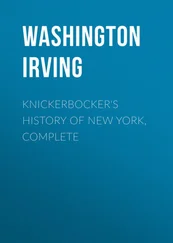So State o’Maine was always well fed before he performed at the lawn parties—for the white linen tablecloths were everywhere burdened with hors d’oeuvres, fancy raw fish, and grilled meats, and if State o’Maine had been hungry, there might have been trouble. But Freud stuffed State o’Maine before the act, and the bloated bear drove the motorcycle calmly. He was placid, even bored, at the handlebars, as if the greatest physical need soon to seize him would be an awesome belch, or the need to move his great bear’s bowels.
“It’s a dumb act and I’m losing money,” Freud said. “This place is too fancy. There’s only snobs who come here. I should be someplace with a little cruder crowd, someplace where there’s bingo games—not just dancing. I should be places that are more democratic —places where they bet on dog fights, you know?”
My father didn’t know, but he must have marvelled at such places—rougher than the Weirs at Laconia, or even Hampton Beach. Places where there were more drunks, and more careless money for an act with a performing bear. The Arbuthnot was simply too refined a crowd for a man like Freud and a bear like State o’Maine. It was too refined, even, to appreciate that motorcycle: the 1937 Indian.
But my father realized that Freud felt no ambition drawing him away. Freud had an easy summer at the Arbuthnot; the bear simply hadn’t turned out to be the gold mine Freud had hoped for. What Freud wanted was a different bear.
“With a bear this dumb,” he told my mother and father, “there’s no point in trying to better my take. And you got other problems when you hustle them cheap resorts.”
My mother took my father’s hand and gave it firm, warning pressure—perhaps because she saw him imagining those “other problems,” those “cheap resorts.” But my father was thinking of his tuition at Harvard; he liked the 1937 Indian and the bear called State o’Maine. He hadn’t seen Freud put the slightest effort into training the bear, and Win Berry was a boy who believed in himself; Coach Bob’s son was a young man who imagined he could do anything he could imagine.
He had earlier planned that, after the summer at the Arbuthnot, he would go to Cambridge, take a room, and find a job—perhaps in Boston. He would get to know the area around Harvard and get employed in the vicinity, so that as soon as there was money for tuition, he could enroll. This way, he imagined, he might even be able to keep a part-time job and go to Harvard. My mother, of course, had liked this plan because Boston to Dairy, and back again, was an easy trip on the Boston & Maine—the trains ran regularly then. She was already imagining the visits from my father—long weekends—and perhaps the occasional, though proper, visits she might make to Cambridge or Boston to see him.
“What do you know about bears, anyway?” she asked. “Or motorcycles?”
She didn’t like, either, his idea that— if Freud was unwilling to part with his Indian or his bear—Father would travel the logging camps with Freud. Win Berry was a strong boy, but not vulgar. And Mother imagined the camps to be vulgar places, from which Father would not emerge the same—or would not emerge at all.
She needn’t have worried. That summer and how it would end were obviously planned more hugely and inevitably than any trivial arrangements my father and mother could imagine ahead of them. That summer of ’39 was as inevitable as the war in Europe, as it would soon be called, and all of them—Freud, Mary Bates, and Winslow Berry—were as lightly tossed along by the summer as the gulls knocked about in the rough currents at the mouth of the Kennebec.
One night in late August, when Mother had served at the evening meal and had only just had time to change into her saddle shoes and the long skirt she played croquet in, Father was called from his room to assist with an injured man. Father ran past the lawn for croquet where Mother was waiting for him. She held a mallet over her shoulder. The Christmas-like light bulbs strung in the trees lit the lawn for croquet in such a ghostly way that—to my father—my mother “looked like an angel holding a club.”
“I’ll be right with you,” Father said to her. “Someone’s been hurt.”
She came with him, and some other running men, and they ran down to the hotel piers. Alongside the dock was a throbbing big ship aglow with lights. A band with too much brass was playing on board, and the strong fuel smell and motor exhaust in the salt air mixed with the smell of crushed fruit. It appeared that some enormous bowl of alcoholic fruit punch was being served to the ship’s guests, and they were spilling it over themselves or washing the deck down with it. At the end of the dock a man lay on his side, bleeding from a wound in his cheek: he had stumbled coming up the ladder and had torn his face on a mooring cleat.
He was a large man, his face florid in the blue wash of the light from the moon, and he sat up as soon as anybody touched him. “ Scheiss! ” he said.
My father and mother recognized the German word for “shit” from Freud’s many performances. With the assistance of several strong young men the German was brought to his feet. He had bled, magnificently, over his white dinner jacket, which seemed large enough to clothe two men; his blue-black cummerbund resembled a curtain, and his matching bow tie stuck up straight at his throat, like a twisted, propeller. He was rather jowly and he smelled strongly of the fruit punch served on board ship. He bellowed to someone. From on board came a chorus of German, and a tall, tanned woman in an evening dress with yellow lace, or ruching, came up the dock’s ladder like a panther wearing silk. The bleeding man seized her and leaned on her so heavily that the woman, despite her own obvious strength and agility, was pushed into my father, who helped her maintain her balance. She was much younger than the man, my mother noted, and also German—speaking in an easy, clucking manner to him, while he continued to bleat and gesture, nastily, to those members of the German chorus left on board. Up the dock, and up the gravel driveway, the big couple wove.
At the entrance to the Arbuthnot, the woman turned to my father and said, with a controlled accent: “He vill need stitches, ja ? Of course you haf a doctor.”
The desk manager whispered to Father, “Get Freud.”
“Stitches?” Freud said. “The doctor lives all the way in Bath, and he’s a drunk. But I know how to stitch anybody.”
The desk manager ran out to the dorm and shouted for Freud.
“Get on your Indian and bring old Doc Todd here! We’ll sober him up when he arrives,” the manager said. “But for God’s sake, get going!”
“It will take an hour, if I can find him,” Freud said. “You know I can handle stitching. Just get me the proper clothes.”
This is different,” the desk manager said. “I think it’s different, Freud—I mean, the guy. He’s a German , Freud. And it’s his face that’s cut.”
Freud stripped his work clothes off his pitted, olive body; he began to comb his damp hair. The clothes,” he said. “Just bring them. It’s too complicated to get old Doc Todd.”
The wound is on his face, Freud,” Father said.
“So what’s a face?” said Freud. “Just skin, ja? Like on the hands or foots. I’ve sewn up lots of foots before. Axel and saw cuts—them stupid loggers.”
Outside, the other Germans from the ship were bringing trunks and heavy luggage the shortest distance from the pier to the entranceway—across the eighteenth green. “Look at those swine,” Freud said. “Putting dents where the little white ball will get caught.”
Читать дальше












